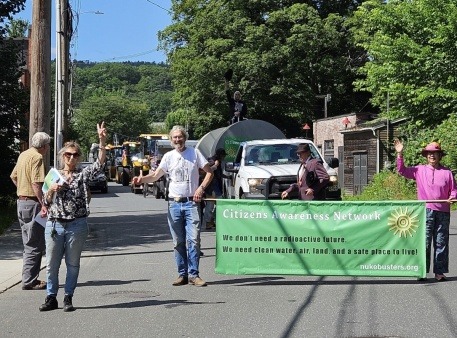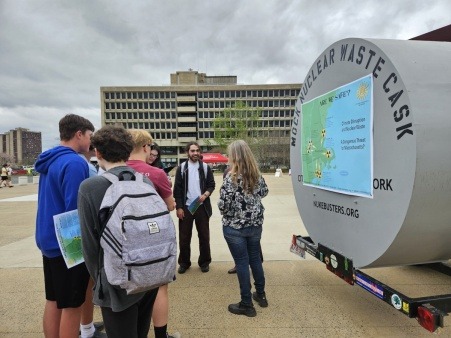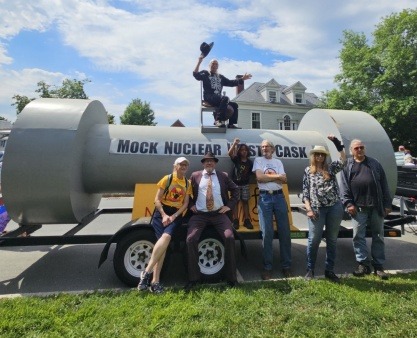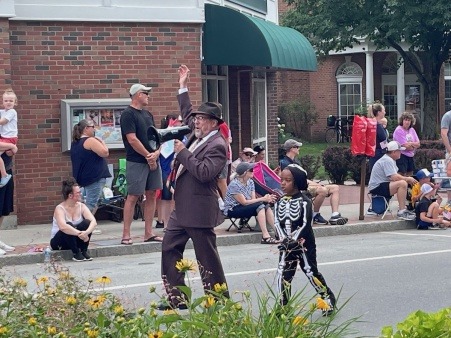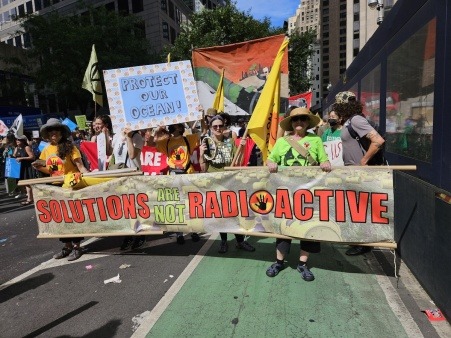Citizens Awareness Network
Our Purpose
Summary of Projects
To support the 1999 Northeast Action Camp II, a week of activist training to give citizens the knowledge and tools to confront issues related to nuclear generation, waste disposal and decommissioning of the region's aging nuclear power plants.
for its Nuclear Free New England Campaign.
To fund implementation of CAN's Radioactive Waste Caravan project which will bring attention to many of the public health and environmental justice issues shipping high level radioactive wastes across public transp0rtation routes raises. As operating nuclear power plants come to the end of their functional lives and are decommissioned, this issue will become more pressing. CAN is one of only a few grassroots groups nationally addressing these concerns.
